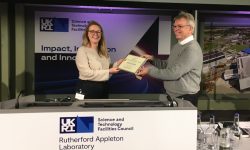PhD studentship at Durham University
A 4 -year PhD studentship is available in the Department of Chemistry, Durham University, which will commence on 01st October 2024. Supervisors: Dr Simon Beaumont (Durham University) and Dr Liliana Lukashuk (Johnson…






